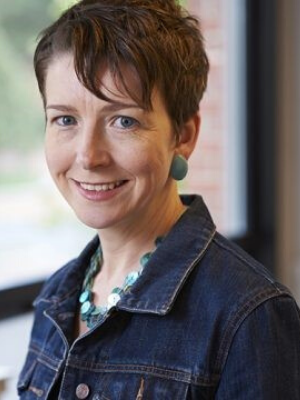 Bio
Bio
Sarah Kanouse is an interdisciplinary artist and critical writer examining the politics of landscape and space. Migrating between video, photography, and performative forms, her research-based creative projects shift the visual dimension of the landscape to allow hidden stories of environmental and social transformation to emerge. Her solo and collaborative work has been presented through the Haus der Kulturen der Welt, Documenta 13, the Museum of Contemporary Art-Chicago, The Cooper Union, The Smart Museum, and numerous academic and DIY venues. Her writing on contemporary art, landscape, and ecology has appeared in Acme, Leonardo, Parallax, and Art Journal, as well the edited volumes Ecologies, Agents, Terrains; Critical Landscapes, Art Against the Law, and Mapping Environmental Issues in the City.
On the Para-Seminar
Para: above, beyond; beside, near, alongside; throughout; abnormal, incorrect.
Calls to remake the processes, forms, and environments through which knowledge is produced, exchanged, and circulated grow louder and more frequent in moments of social and political upheaval. The escalating and interlocking crises of the Anthropocene—ranging from the global resurgence of far-right nationalism to precipitous declines in bird and insect populations—have prompted a remarkable range of experimental platforms in response to the onto-ethico-epistemological challenges of the present. Many of these projects respond to longstanding critiques of academic inquiry in their attempts to foster transdisciplinary collaboration, flatten hierarchies between scholars and organic intellectuals, generate useful knowledge, and engage ethically with the extra-academic and/or more-than-human worlds. As the neoliberal university has co-opted and assimilated many of these critiques—mutating calls for curricular ‘relevance’ into cash-cow professional certificate programs and recasting interdisciplinarity as a technocratic funding mandate—cultural organizations have offered parallel programs that creatively rework and hybridize forms of knowledge production and exchange, such as the seminar, workshop, laboratory, and conference, with practices rooted in activist, artistic, or design process, such as the convergence, studio, site visit, or charrette. Often employing a rhetoric of decolonization and promising to exceed the intellectual and affective limitations of existing academic forms, these platforms nonetheless draw (sometimes parasitically, sometimes conspiratorially) on the infrastructures, audiences, funding sources, and prestige economies of dominant institutions. Existing both “beyond” and “beside” institutions, these experimental practices seem to offer models for the emplaced, embodied, material, and respectful practices of research and pedagogy needed for mutual survival in a climate-disrupted world. Yet their continued investment in “what counts” as academic or cultural accomplishment may work against their ability to develop the thinking, making, and feeling skills needed in a future that is still uncertain but ever more present. This talk outlines several recent para-academic experiments in eco-social education in order to situate, reflect on, and critique “Over the Levee, Under the Plow,” a mobile seminar organized for the Haus der Kulturen der Welt’s 2019 program Mississippi: An Anthropocene River.
